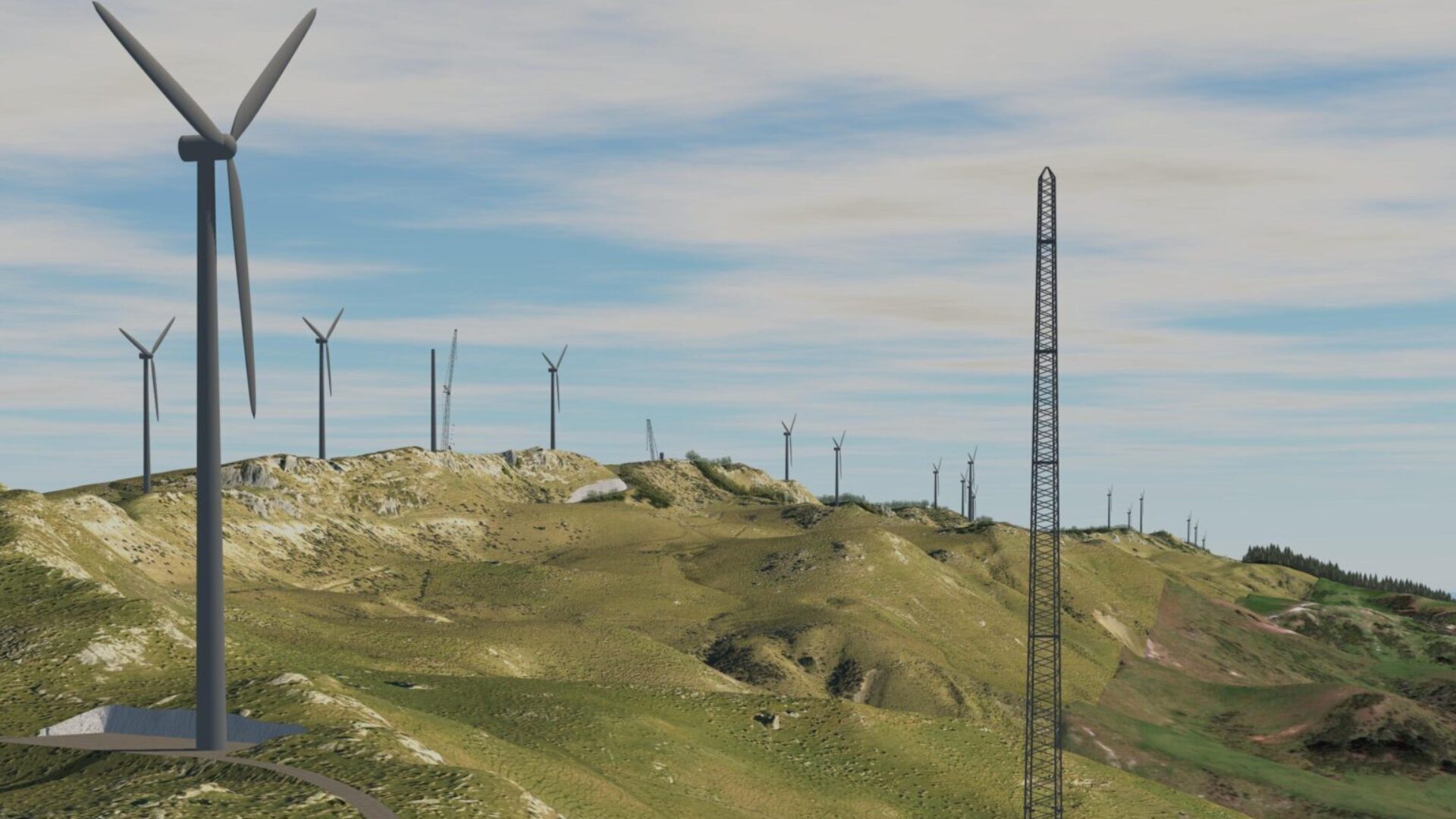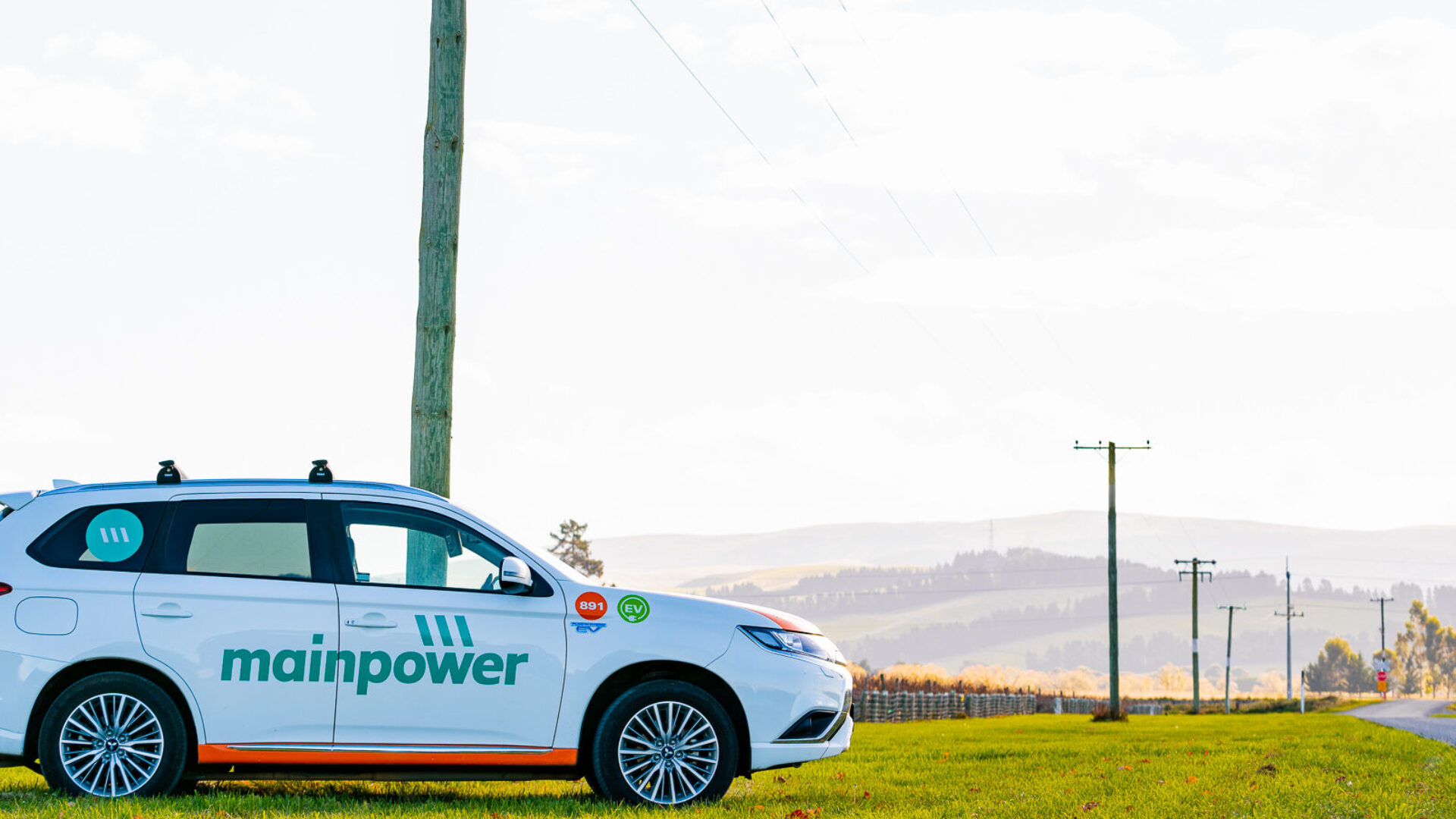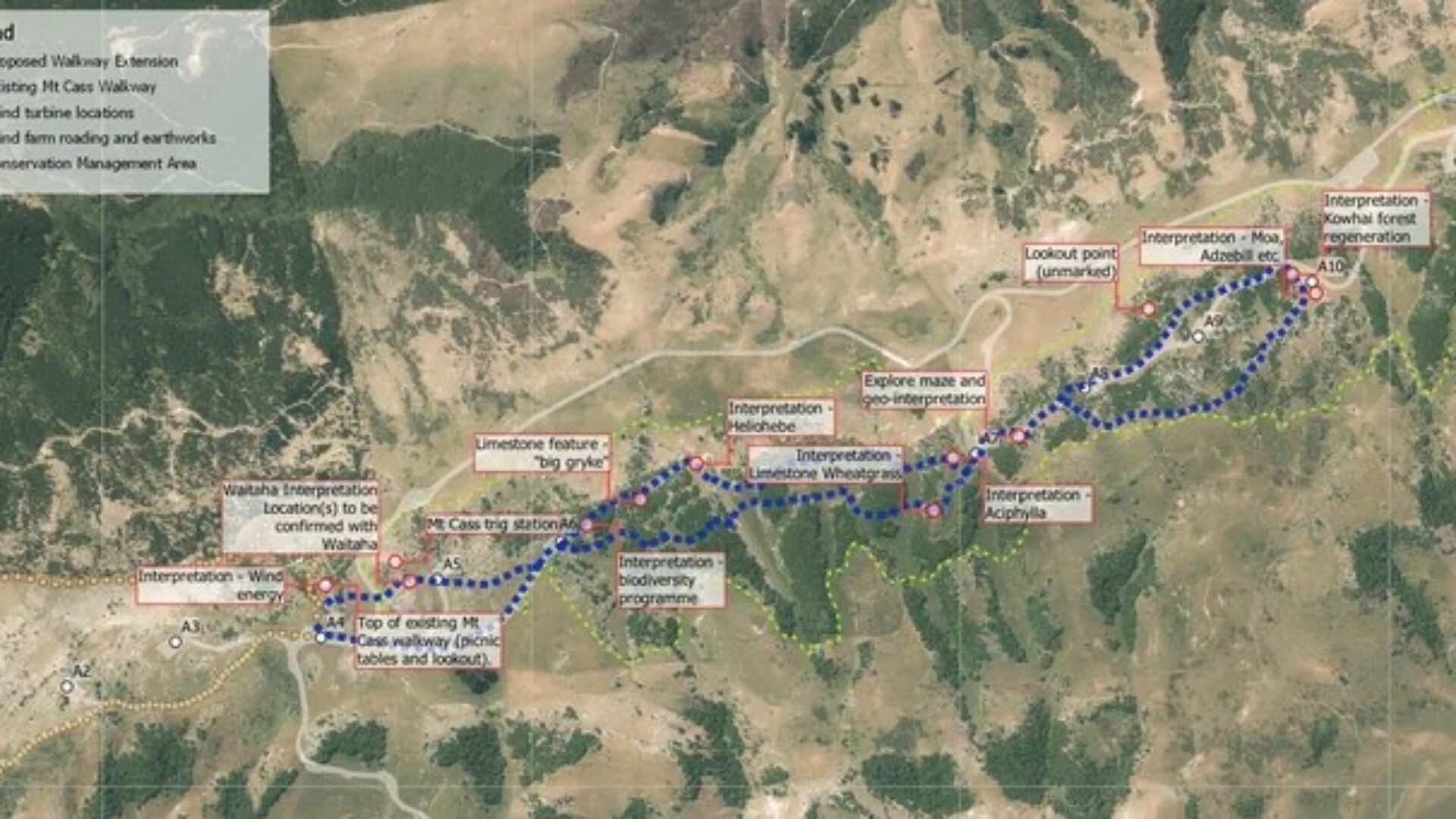Despite a challenging year, the Mt Cass Wind Farm team have achieved some significant milestones in 2020, specifically with our ecological monitoring and research at Mt Cass.
Here is a summary of the key work that has been undertaken so far, and the next steps.
Long-tailed bat discovery at Mt Cass
An acoustic survey for bats in the vicinity of the planned Mt Cass Wind Farm site, undertaken in collaboration with the Department of Conservation (DOC), has detected long-tailed bats in the area.
The acoustic survey, commissioned by Mt Cass Wind Farm Ltd, is another great outcome from the activities and ongoing pest control being undertaken to enhance and protect the ecology of the site, says Mt Cass Wind Farm project director, Scott Bennett. “As one of only three known populations on the eastern side of the upper South Island, this finding is exciting news for the community, and has aided in our understanding of the presence of native wildlife in the area.”

The distribution of long-tailed bats in the South Island, based on records in DOC’s bat database for the period 1990 to 2019 (blue symbols) and the results of the Mt Cass acoustic survey (red symbols).
The finding was made following two weeks of acoustic monitoring in the area. Long-tailed bats were found at five of the 26 survey locations, with reports from one location indicating that there is an active roost in the area.
The project’s DOC endorsed Environmental Management Plan clearly sets out the protocol to manage the discovery of a new species. “The next step is to carry out further monitoring in the area and understand more about the movement of the species to ensure we can protect them.” Says Mr Bennett.
Click here to find out more about the long-tailed bats at Mt. Cass
Environmental Management Plan
Following the recent endorsement of our Environmental Management Plan from the Department of Conservation and approval from Fire and Emergency New Zealand, the plan is currently in the final stage of approval from Hurunui District Council.
Our Environmental Management Plan describes the methods and outcomes proposed to manage the site, as required by the conditions of our land use consent. It also highlights our commitment to undertake a programme of conservation, protection and restoration that ultimately improve biodiversity values at the Mt Cass Wind Farm site.
Once the plan is finalised, we’ll let you know. It will be publicly available online and at locations in the area.
Lizard Update
Work to monitor lizards that live at the Mt Cass Wind Farm site is ongoing. We are planning to re-locate two protected species of lizard (Waitaha Geckos and Southern Grass Skinks) from the wind farm roading and turbine platform footprints to a new adjacent habitat at Mt Cass next year.
A programme of pest management has been underway since March 2020 to remove predators from the relocation area and allow the lizards to thrive in their new home.
For the first time since our monitoring began, we have seen lizard footprints in our tracking tunnels – indicating that our pest control efforts are working, and the lizard population is getting stronger.

Traps and Maps
All our pest management efforts are being recorded at trap.nz – a free online service used throughout NZ to record trap, bait, monitoring, and biodiversity data. The information we upload influences the future of predator eradication and biodiversity management in New Zealand.
Since April this year, we’ve trapped 147 pests including feral cats, weasels, hedgehogs, stoats, possums, rats and mice. Not only will this benefit the lizards, but we expect the native birdlife and bats to prosper as well.
You can follow our progress and find out more here.





